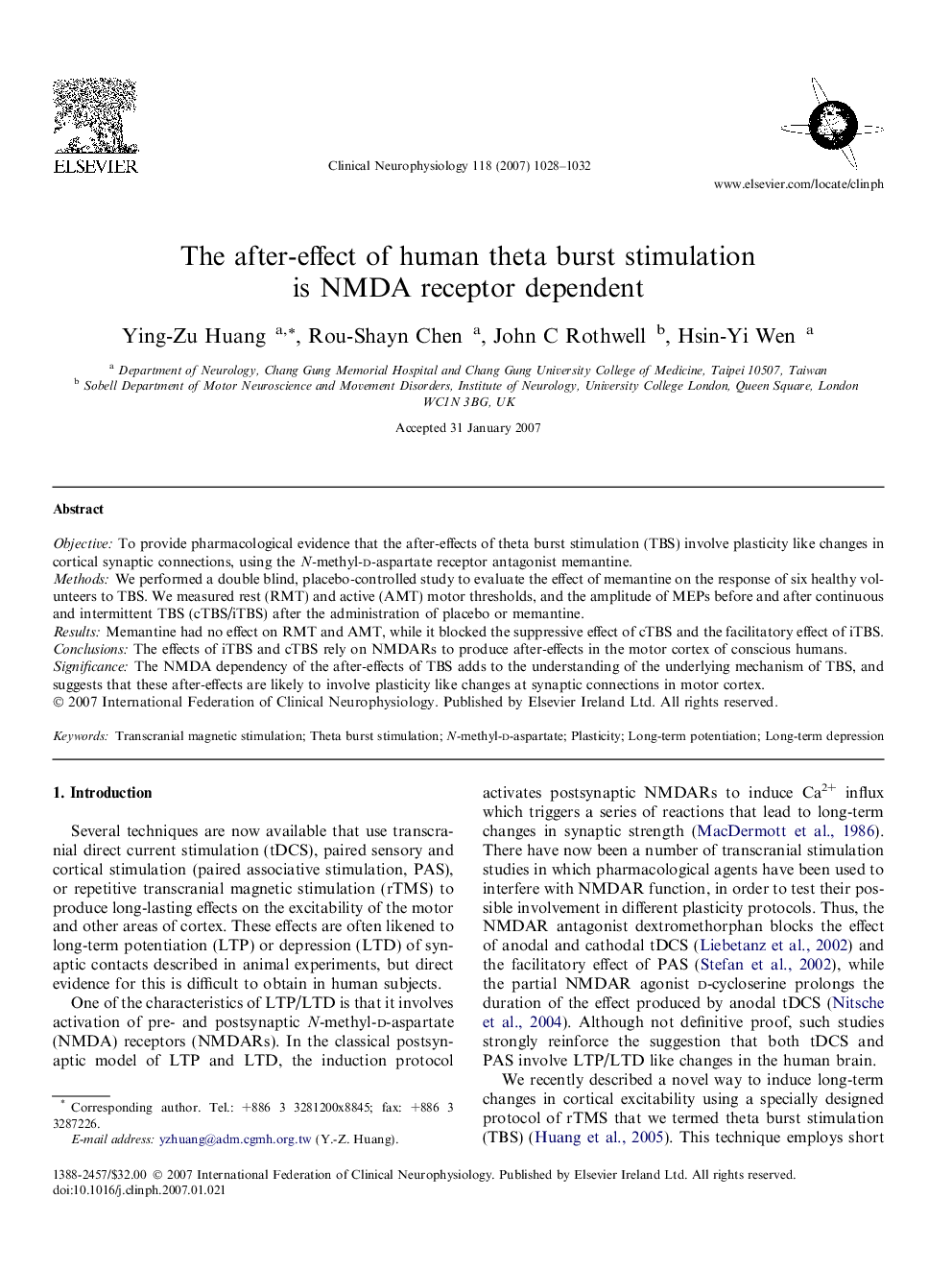| Article ID | Journal | Published Year | Pages | File Type |
|---|---|---|---|---|
| 3048524 | Clinical Neurophysiology | 2007 | 5 Pages |
ObjectiveTo provide pharmacological evidence that the after-effects of theta burst stimulation (TBS) involve plasticity like changes in cortical synaptic connections, using the N-methyl-d-aspartate receptor antagonist memantine.MethodsWe performed a double blind, placebo-controlled study to evaluate the effect of memantine on the response of six healthy volunteers to TBS. We measured rest (RMT) and active (AMT) motor thresholds, and the amplitude of MEPs before and after continuous and intermittent TBS (cTBS/iTBS) after the administration of placebo or memantine.ResultsMemantine had no effect on RMT and AMT, while it blocked the suppressive effect of cTBS and the facilitatory effect of iTBS.ConclusionsThe effects of iTBS and cTBS rely on NMDARs to produce after-effects in the motor cortex of conscious humans.SignificanceThe NMDA dependency of the after-effects of TBS adds to the understanding of the underlying mechanism of TBS, and suggests that these after-effects are likely to involve plasticity like changes at synaptic connections in motor cortex.
